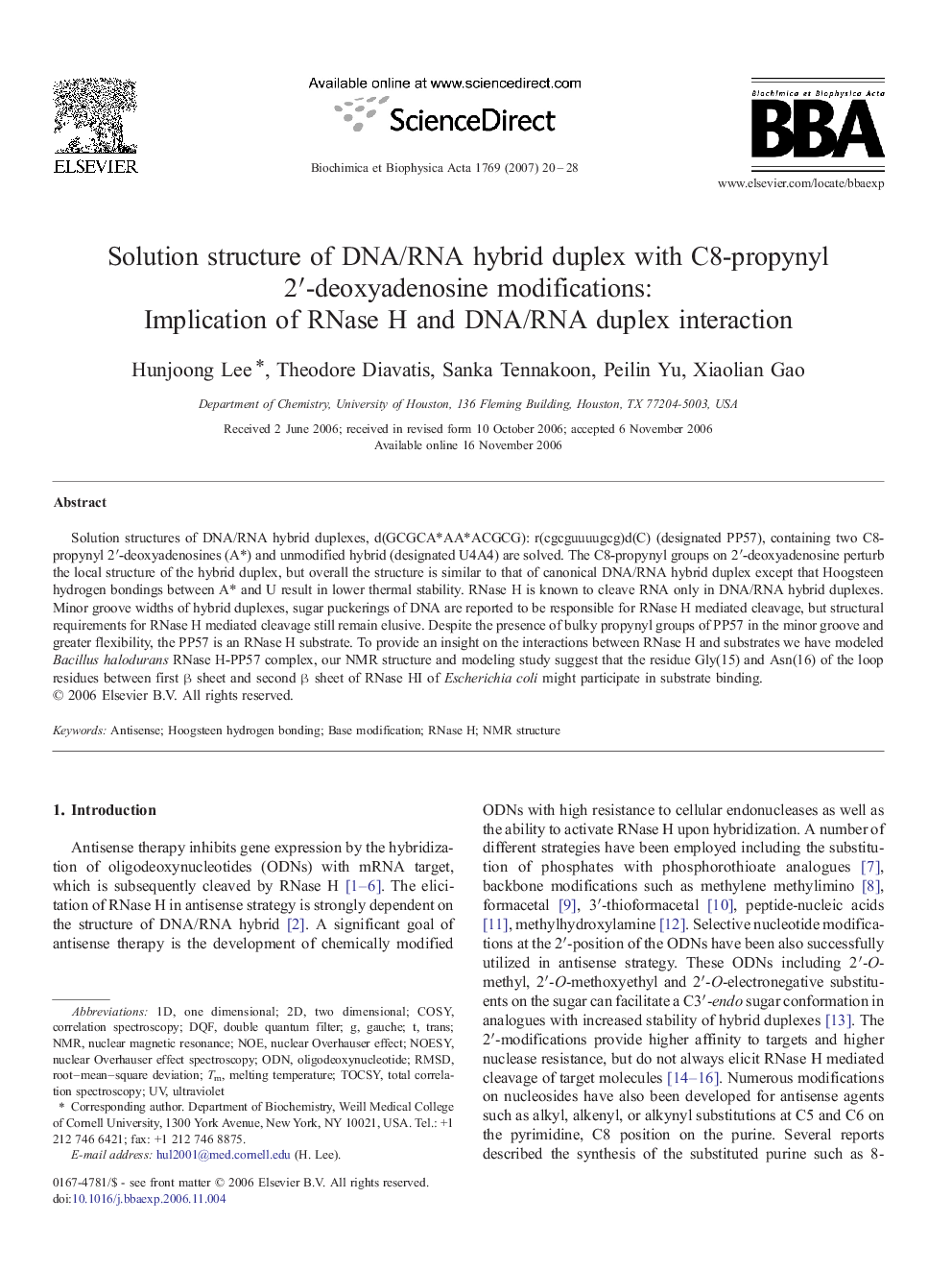| کد مقاله | کد نشریه | سال انتشار | مقاله انگلیسی | نسخه تمام متن |
|---|---|---|---|---|
| 1947164 | 1054300 | 2007 | 9 صفحه PDF | دانلود رایگان |

Solution structures of DNA/RNA hybrid duplexes, d(GCGCA*AA*ACGCG): r(cgcguuuugcg)d(C) (designated PP57), containing two C8-propynyl 2′-deoxyadenosines (A*) and unmodified hybrid (designated U4A4) are solved. The C8-propynyl groups on 2′-deoxyadenosine perturb the local structure of the hybrid duplex, but overall the structure is similar to that of canonical DNA/RNA hybrid duplex except that Hoogsteen hydrogen bondings between A* and U result in lower thermal stability. RNase H is known to cleave RNA only in DNA/RNA hybrid duplexes. Minor groove widths of hybrid duplexes, sugar puckerings of DNA are reported to be responsible for RNase H mediated cleavage, but structural requirements for RNase H mediated cleavage still remain elusive. Despite the presence of bulky propynyl groups of PP57 in the minor groove and greater flexibility, the PP57 is an RNase H substrate. To provide an insight on the interactions between RNase H and substrates we have modeled Bacillus halodurans RNase H-PP57 complex, our NMR structure and modeling study suggest that the residue Gly(15) and Asn(16) of the loop residues between first β sheet and second β sheet of RNase HI of Escherichia coli might participate in substrate binding.
Journal: Biochimica et Biophysica Acta (BBA) - Gene Structure and Expression - Volume 1769, Issue 1, January 2007, Pages 20–28